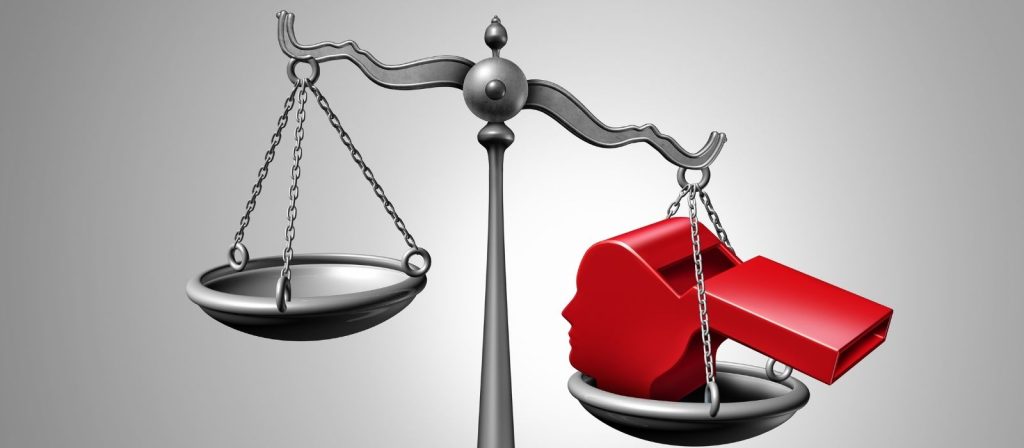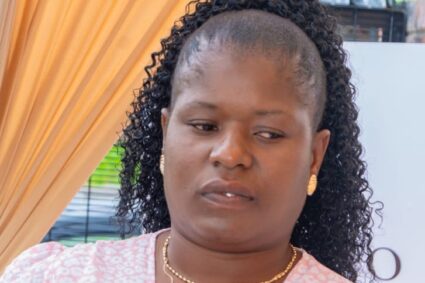
Earlier this year, I attended an anti-corruption workshop. During lunch, I sat with a member of the videography crew. We struck up a conversation in which he asked, “Do you guys celebrate whistleblowers?” Confidently, I responded, “Yes, we celebrate them for their courage to stand up against corruption.” He looked at me and remarked, “In my township neighbourhood, we call them ‘impimpi,’ which means a snitch. No one likes a snitch in the ‘ghetto,’ but here in the suburbs of Sandton Johannesburg, South Africa, where the conference is being held, you are gathered here celebrating them.” His perspective as an observer of anti-corruption matters was intriguing.
I paused for a moment before replying, “Whistleblowers are under attack everywhere”. Whistleblowing is an act of great courage that comes with its own set of personal risks and challenges. Those who choose to expose corruption or wrongdoing within organizations often face obstacles that can have serious consequences on their financial and personal well-being. This is especially true in Africa, where unemployment is high, and whistleblowers are more likely to face arrest and loss of employment without compensation. African governments need to do more to ensure the safety and livelihoods of whistleblowers. From the international and our African cases, I’ve read about, whistleblowers face life-threatening risks that deter many from coming forward. “Governments in Africa will need to do more to guarantee the safety and life of Whistleblowers. From some of the international cases I have read about, Whistleblowers face life threatening risks that prevent Whistleblowers from coming forward .
One of the main risks that whistleblowers face is Retaliation from their employers or colleagues. Whistleblowers may be subjected to harassment, intimidation, or even termination from their jobs. For example, in the case of Sherron Watkins, a former Enron employee who exposed the company’s accounting fraud, she faced backlash from Enron executives and even received death threats. This kind of hostile environment can take a toll on whistleblowers’ mental and emotional health, leading to stress, anxiety, and depression.
Financial risks are also a major concern for whistleblowers. When individuals come forward with information about corruption, they may face legal battles, loss of income, and difficulty finding new employment. For instance, Cynthia Cooper, who uncovered accounting irregularities at WorldCom, faced financial strain due to legal fees and loss of income after leaving the company. Whistleblowers often have to make tough financial decisions, such as dipping into their savings or seeking outside support to make ends meet.
Emotional support is also crucial for whistleblowers. Many individuals who choose to blow the whistle do so out of a strong sense of ethics and moral duty, which can be emotionally taxing. Having a strong support system of friends, family, or mental health professionals can help whistleblowers cope with the stress and anxiety that often accompany their decision.

Personal strategies, whistleblowers need to carefully plan their approach to reporting wrongdoing. It is important for whistleblowers to gather as much evidence as possible before coming forward and to clearly document any interactions related to the corruption. Additionally, seeking legal advice and protection can help whistleblowers navigate the legal complexities of their situation. For example, Bradley Birkenfeld, a former banker who exposed tax evasion at UBS, worked closely with the U.S. government and received financial rewards as part of the IRS whistleblower program
Whistleblower Protection Developments in Southern Africa.
Governments and Non-Profit Organisations in Southern Africa are actively working to safeguard whistleblowers. The Platform to Protect Whistleblowers in Africa (PPLAAF) is dedicated to defending whistleblowers and providing them with the best legal defense when their disclosures serve the public interest of African citizens. Established in 2017 by a group of lawyers, anti-corruption activists, and investigative journalists, PPLAAF supports whistleblowers by offering legal strategy, funding, research, legislation, and technology solutions.
In South Africa, Whistleblower House, a non-profit public benefit organization, provides essential support services to whistleblowers. These services include legal, psychological, financial, and safety and security assistance. The organization also raises awareness about the challenges faced by whistleblowers and recognizes their crucial role in promoting ethics and democracy. Additionally, and Deutsche Gesellschaft für Internationale Zusammenarbeit (GIZ) GmbH South Africa have established programs to aid whistleblowers. These include the Whistleblowers Support Platform for Reform (WSPR), research on psychosocial support, and the Whistleblower First Responder Training Guide. The guide was authored by Dr. Liezl Groenewald of the Ethics Institute, with Cherese Thakur (GIZ) as the principal reviewer and editorial support from Prof. Deon Rossouw of The Ethics Institute.
Zambia has enhanced its efforts by launching an online whistleblower platform through its Anti-Corruption Commission. This Online Anonymous Whistleblower System allows individuals to report suspected corrupt practices anonymously from their homes or offices.
Zimbabwe is progressing with a new law to protect whistleblowers reportedly in development. A consultant was hired in late 2023 to assist in drafting several bills, including the Anti-Corruption Commission Act (Amendment) Bill, Whistleblower Protection Bill, and Public Disclosure Bill. Furthermore, on June 6th, The Newsday reported that the National Prosecuting Authority of Zimbabwe (NPAZ) is devising measures to protect whistleblowers and witnesses in high-profile cases involving influential figures. In 2020, the International Commission of Jurists (ICJ), in collaboration with the Zimbabwe Anti-Corruption Commission (ZACC), launched a whistleblowing application mechanism.
Lastly, Botswana, recognized as the least corrupt country in Africa by Transparency International’s Corruption Perception Index, has had a Whistleblower Protection Bill since 2016. The government is reportedly working on amendments to further enhance protections for anonymous reporters or whistleblowers, although a specific timeline has not been provided.
Being a whistleblower is a challenging and high-stakes endeavour. The risks to one’s financial stability and personal well-being are significant, but for many whistleblowers, the potential positive impact of exposing wrongdoing outweighs these risks. By carefully planning their approach, seeking legal and emotional support, and staying true to their principles, whistleblowers can navigate the challenges they face and bring about positive change in their organisations and communities.


